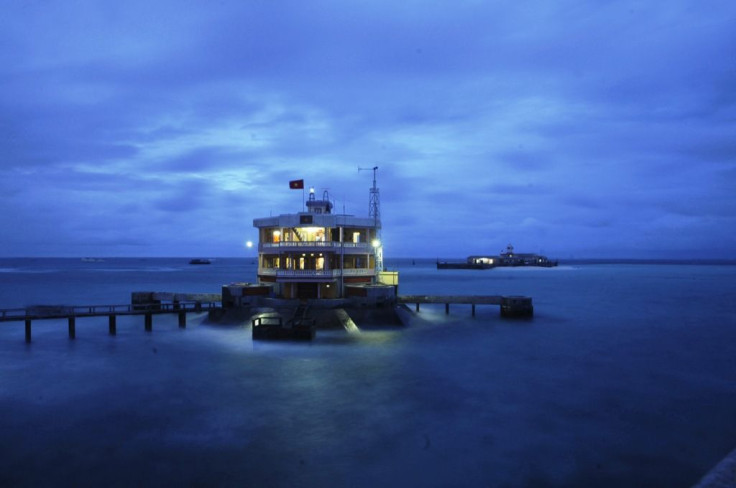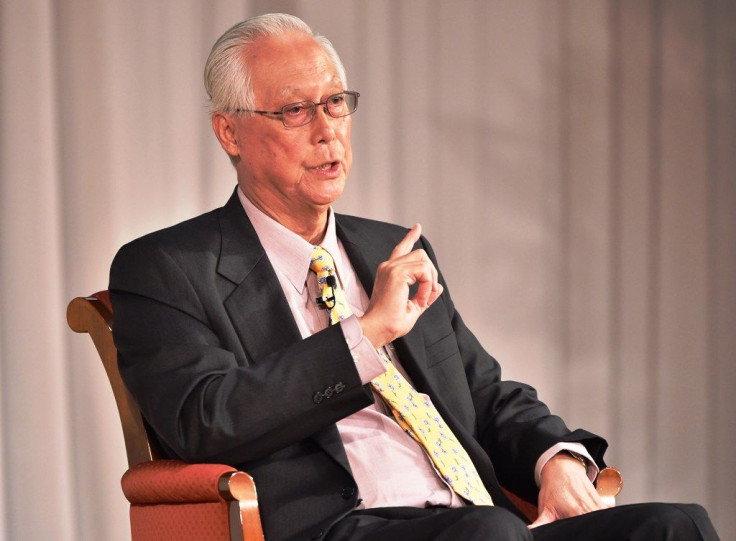South China Sea Controversy: Territorial Dispute Cannot Be Resolved With ‘Might Is Right’ Idea, Singapore’s Goh Chok Tong Says

The South China Sea territorial dispute is a “proxy” for strategic adjustments between China and the United States, Singapore’s Emeritus Senior Minister Goh Chok Tong said Monday, according to Nikkei Asian Review. Goh also said the problems in the contested region cannot be resolved with the idea of “might is right.”
China has consistently defended its actions of growing military presence saying it does not have any intentions of starting a conflict and that its operations will add to the contested region's safety. The U.S. Navy also has been sending ships to the South China Sea under freedom of navigation patrols, angering Beijing. A top Marine Corps said earlier that the U.S. would continue its operations in the South China Sea and build trust with the countries in the Asia-Pacific region.
Goh, who served as Singapore’s prime minister for nearly 14 years until 2004, said the regional stability in Asia will depend on the U.S.-China ties, but he noted that “the region is large enough for all major powers, including Japan, to exist peacefully and resolve their problems constructively without raising tensions,” Nikkei Asian Review reported. He made the comments at the 22nd International Conference on the Future of Asia held in Tokyo.
“Competition between major powers is inevitable, but no country wants to choose sides between the U.S. or China,” Goh said.

China has been building runways and ports on the islands in the South China Sea to assert its claim over the region. The country is also planning to make islands in the Paracel archipelago a tourist hub, and it has already built sports facilities on its artificial islands in the contested area’s Spratly archipelago.
Goh said the construction and the growing presence of the Chinese military in the region could result in “a more militarized South China Sea,” the business journal reported. He also warned that “the line between domestic and foreign policy has blurred,” and that the rise of nationalist sentiment “will increase the possibility of conflict.”
However, Goh said the territorial dispute should be settled peacefully and in accordance with international law — including the 1982 United Nations Convention on the Law of the Sea.
The South China Sea region has been long contested, with Beijing laying claims to most of it. Brunei, Malaysia, the Philippines, Taiwan and Vietnam also have conflicting claims to the waters, through which over $5 trillion of maritime trade passes annually. Beijing’s assertiveness in the disputed region has attracted criticism from several countries, including the U.S., which accuses China of militarizing the region.
© Copyright IBTimes 2024. All rights reserved.












